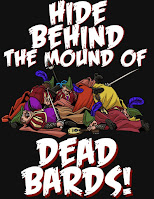 |
| Image Courtesy of PngAAA |
In AD&D or BECMI the dice are your enemy; you don't want to roll them! The dice will fuck you. You can't rely on success by rolling dice.
More importantly, you don't need to.
A good TSR-Era DM or GM for almost any role-playing game made before 1993, didn't rely on dice if you gave detailed narration of your actions.
Examples:
You use an oil lamp to blow smoke across a wall to look for places where it is drawn in or anomalously pushed away from the wall: The DM wouldn't roll a "find secret doors" check, because obviously, you'd find the seams of the door.
You hand your 10' pole to an Unseen Servant and instruct it to press down on every flagstone in a hall. No need to "Find Traps" to find a tripwire or pressure plate: it will be sprung while the PCs at a safe distance.
You suspect there is another level below you, so you empty a waterskin on the floor, then put your ear to it and listen for dripping. No need for a stonecunning or architecture roll.
It applies to combat, too. If you blocked a door with a Tenser's floating disk then antagonized an enemy into a charge, they were going to run into the disk and lose a move. No deception roll required, no saving throw given. The dis is immobile, invisible, and at gut level, after all.All of these are examples of tricks I or some of the grognards in my groups have used in the last year. Some are not particularly original, but all are useful and effective if the GM's world works on predictable natural laws.
The best players are the ones who never let the dice fall if they can avoid it, they use terrain, objects, surprise, magic, and traps creatively to get bonuses if rolling was going to happen at all.
Moves like these are what Matt Finch describes as "Player Skill" in his Old School Primer. And the choice of the GM to use logic to determine the outcomes of narrated actions rather than resorting to game mechanics.
Once you add more mechanics , especially skills and feats or class features to enhance them, the party starts thinking in terms of getting the best rolls on the dice.
If I blackmail a noble with evidence of his infidelity, I don't need an Intimidation check, Logically I'd have his balls in a vice, and he will have to react in a way consistent with his character. If uncertain, the GM might use a tool like Morale to determine whether he meets my demands or tries to kill me.
With an Intimidation stat on my sheet, however, there's a good chance I'll be asked to roll it. Or, because it's there, I'll be preparing to roll it & trying to figure out how to boost the roll. Even if rolling to determine whether I am convincing making my demands or not doesn't really make sense.
Dice Dependence
The modern game encourages thinking with the dice and rolling them often. Even if this increases the chance of failure. This is not necessarily the case of course... It's psychological. A good DM can still leave rolling for moments of absolute uncertainty, but once you have a sheet full of stats, skills, feats, and enhancements, there is a tendency to want to apply them by the GM, who has spent a lot of effort learn the rules. And players tend to build characters to have the best possible chance to succeed on specific rolls, and will have expectations that they will be allowed to use them.
And this is self sabotage, both for a GM who wants his players to enjoy the game to it's fullest. And for players who want to see their characters succeed. Dice should only be resorted to when you are out of clever ideas, and only when you have stacked advantages in your favor.
Because the dice will fuck you. They are there to add danger. It's why combat is so dicey in most TTRPGs: to add as much risk as possible. The wise player rolls as little as possible.
But dice are everywhere. D20 memes & apparel, dice towers, dice collecting, the exaggerated response to dice in videos about the game.
We are encouraged to be addicted to the excitement of the dice, even when it changes the nature of the game. And dice are addictive. We receive random operant conditioning every time we use them.
Taken to it's extreme, this trend takes player skill out of the equation. Players play in vagueries, expecting to be told when to roll, or asking to do so. They only become specific in combat, which the enter into frequently, and rely on brute force and aggressive tactics rather than subterfuge and strategy.
Ultimately, too much dice focus creates a table culture where players are not rewarded for skill and creative problem solving. It short circuits narrative integrity and logic in favor of working with the numbers on the character sheet.
Maybe that's why I gravitate to rules light OSR and minimalistic games. The fewer the numbers, the less you think about rolling. And why I still use a d20 that I was given on my 12th birthday.
If I had one piece of advice to give newer players to the game, and especially newer GMs, it would be to mistrust the Dice. Learn how to play so that they are rolled rarely, and preferably when you have stacked advantages.
The dice may be fun, but they are not your friend.

"He does not let anyone roll the dice."
ReplyDeleteA personal favorite!
Delete